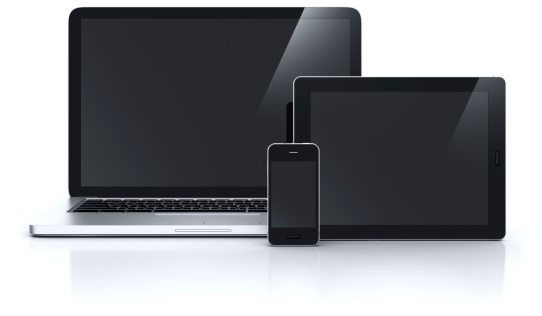It looks like the bad news in the PC sales trend is not anywhere close to being at an end. Research firm International Data Corp. (or IDC) has now lowered estimates yet again for its worldwide PC shipments for 2013. Apparently customers are considering alternatives and delaying purchases of PCs as tablets and smart phones remain the easy consumer alternative to spending up for new desktop or laptop PCs.
Shipments in 2013 are expected to be down 7.8% to 321.9 million units. The prior review was for a decline of only 1.3%. Things may be even worse for 2014 as well, because IDC is now suggesting that PC shipments may fall 1.2% next year. Out to 2017, shipment volume is expected to be 333 million units versus a peak of over 363 million units in the year 2011.
We noted the tablets were to blame. Those shipments are now expected to rise almost 60% in 2013 up to 229.3 million units. Tablets should remain a long-term threat to the PC market as well because IDC expects the segment to outpace PCs by 2015.
There also appears to be a theme of threats based upon price and what deemed as good enough computing. Consumers are opting for tablets and smart phones for their portability and battery life. It also is probably obvious that the price differential is playing into the equation as well.
If you have watched the turnaround of Hewlett-Packard Co. (NYSE: HPQ) and the long controversial buyout of Dell Inc. (NASDAQ: DELL), the trends in the PC market may not seem so shocking after all. We find it interesting that this is happening at a time when Apple Inc. (NASDAQ: AAPL), which was the primary disrupting factor for PCs, also is finding itself in a position in which its share price performance is no longer running up in a straight line.
The year 2014 should also be an interesting one for Microsoft Corp. (NASDAQ: MSFT) as Windows XP support is expiring. The prior reports have shown that much of the blame of the PC market is actually due to consumers pushing back against the adoption of Windows 8. Many Windows loyalists have complained that the newest version of Windows does not feel like the Windows that they became comfortable with. Imagine a Windows with no START button.
Another threat has been Google Inc. (NASDAQ: GOOG) with its cheap Android operating system, bolstering smartphones at first and now bolstering lower-cost tablet purchase alternatives. This remains a threat to the traditional PC market and to Windows in particular.
If you take the average tablet price of less than $400 and compare it to almost $650 for a personal computer, the good enough computing equation may make more sense. It also seems safe to assume that the average price of a tablet will keep falling and looking even more attractive, versus a traditional laptop or bulky desktop PC.
Shares of Dell are up 0.2% at $13.36, which leaves a merger-arbitrage gain of 2.1% to the $13.65 buyout price. HP shares remain firm with 1.2% gains to $24.50 after better-than-expected earnings a week ago. Microsoft shares are up 1.6% at $34.82 on the day, while Apple shares are down 0.2% at $444.20.
Travel Cards Are Getting Too Good To Ignore (sponsored)
Credit card companies are pulling out all the stops, with the issuers are offering insane travel rewards and perks.
We’re talking huge sign-up bonuses, points on every purchase, and benefits like lounge access, travel credits, and free hotel nights. For travelers, these rewards can add up to thousands of dollars in flights, upgrades, and luxury experiences every year.
It’s like getting paid to travel — and it’s available to qualified borrowers who know where to look.
We’ve rounded up some of the best travel credit cards on the market. Click here to see the list. Don’t miss these offers — they won’t be this good forever.
Thank you for reading! Have some feedback for us?
Contact the 24/7 Wall St. editorial team.




